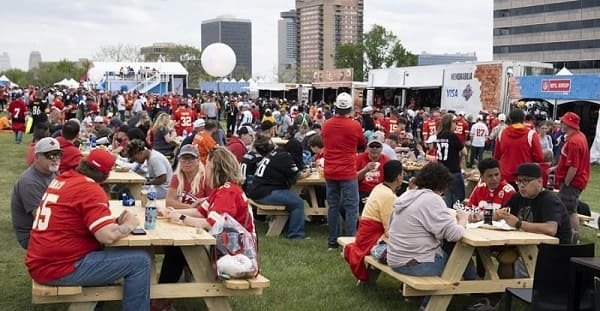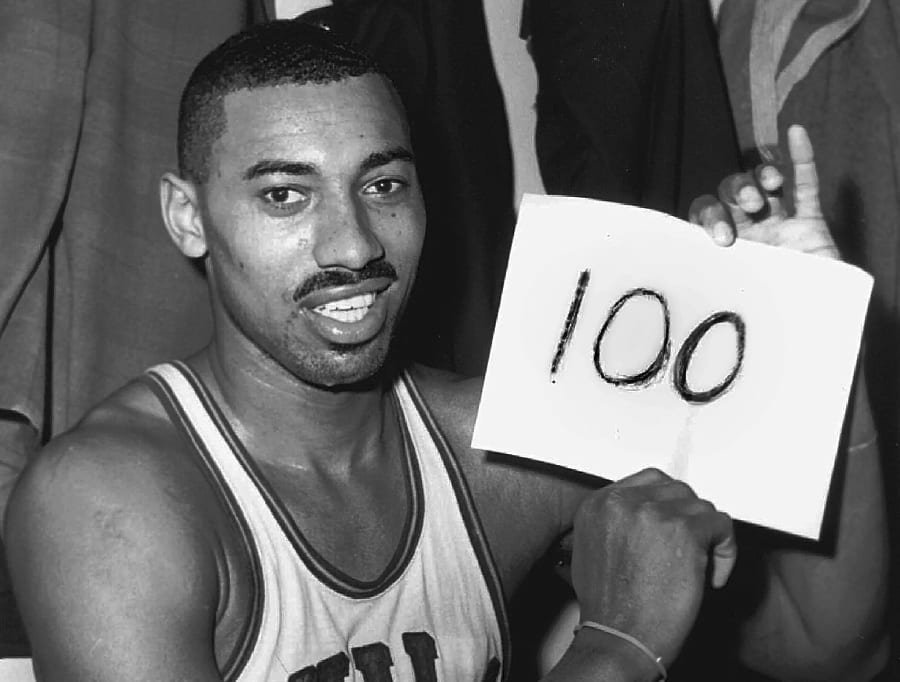The NFL is more than just a source of entertainment. It plays a significant role in boosting local economies. From game days to team facilities, the league’s influence extends far and wide. Let’s explore how the NFL impacts local communities.
Game Day Revenue
Game days are a major event for host cities. Fans flock to stadiums, filling hotels, restaurants, and bars. This influx of visitors generates significant revenue. Local businesses see a surge in customers, benefiting from the excitement surrounding the game.
Hotels and Hospitality
Hotels near stadiums often reach full capacity on game weekends. Fans travel from out of town to watch their favorite teams. This boosts occupancy rates and increases hotel revenue. Hospitality services, including catering and event planning, also see increased demand.
Extended Stays
Many fans extend their stay beyond just the game day. They explore the city, visit local attractions, and shop. This extended stay means even more revenue for hotels and local businesses. Conferences and business meetings are often scheduled around game weekends, further boosting hotel occupancy.
Restaurants and Bars

Restaurants and bars experience a surge in patrons on game days. Fans gather to enjoy pre-game meals and post-game celebrations. Many establishments offer special promotions and game-day menus, attracting even more customers. This increased foot traffic translates to higher sales and profits.
Local Cuisine and Specialty Menus
Many restaurants introduce special game-day menus featuring local cuisine and team-themed dishes. These unique offerings draw in both locals and visitors. Bars often host viewing parties with special deals on drinks and appetizers, creating a festive atmosphere that keeps customers coming back.
Increased Staffing
To handle the game day rush, restaurants and bars often hire additional staff. This creates temporary jobs and boosts the local economy. The extra income for employees and increased sales for businesses create a positive economic ripple effect throughout the community.
Transportation and Parking
Transportation services also benefit significantly. Taxis, rideshares, and public transportation see a spike in demand as fans travel to and from the stadium. Parking facilities near the stadium charge premium rates on game days, generating additional revenue. Local transit systems often increase service to accommodate the influx of fans, improving overall accessibility and convenience.
Merchandise Sales

Local vendors and shops selling team merchandise experience a surge in sales on game days. Fans love to buy jerseys, hats, and other memorabilia to show their support. Temporary kiosks and pop-up shops around the stadium also capitalize on this demand, providing fans with a wide array of products. This boosts local retail sales and supports small businesses.
Tourism and Entertainment
Beyond just the game, visitors often take the opportunity to explore local attractions. Museums, theaters, and other entertainment venues see increased attendance. This helps promote the city’s cultural and recreational offerings, encouraging repeat visits. Tour operators and local guides also benefit from the increased tourism, providing services to fans who want to experience more of the city’s attractions.
Game day revenue impacts the entire local economy, from hospitality and dining to transportation and retail. This multifaceted economic boost helps sustain local businesses and creates a vibrant atmosphere, reinforcing the positive impact of hosting NFL games.
Job Creation
The NFL creates numerous job opportunities. Stadiums and team facilities employ thousands of people. These jobs range from event staff and security to maintenance and food services. The league’s presence also supports indirect employment in local businesses.
Seasonal and Full-Time Employment
Game days require a large workforce. Many people find seasonal employment at stadiums. These jobs provide valuable income and work experience. Additionally, full-time positions with teams and stadium operations offer stable employment opportunities.
Economic Multiplier Effect
The employment created by the NFL has a ripple effect. Workers spend their earnings in the local economy, supporting businesses like grocery stores, restaurants, and retail shops. This spending stimulates further economic activity and job creation. The NFL’s presence can reduce unemployment rates and improve the overall economic health of the community.
Diverse Roles and Opportunities
Employment opportunities at NFL events and facilities are diverse. They include roles in marketing, logistics, healthcare, and technology. This variety allows people with different skills and backgrounds to find suitable employment. Internship programs with NFL teams also provide valuable career development opportunities for young professionals.
Supporting Local Vendors
The NFL supports local vendors by sourcing goods and services from the community. This includes food suppliers, merchandise vendors, and maintenance companies. By partnering with local businesses, the league helps boost the local economy.
Economic Partnerships
Local vendors benefit from long-term partnerships with NFL teams. These relationships provide a stable source of revenue and growth opportunities. Vendors supplying food, beverages, and souvenirs to stadiums often see a significant increase in business. This stability can lead to expansion and more local hiring.
Promoting Local Products
NFL teams often promote local products and brands within the stadium. This exposure helps small businesses reach a larger audience. Vendors can showcase their products to thousands of fans, leading to increased brand recognition and customer loyalty.
Infrastructure Development
NFL teams often invest in infrastructure development. New stadiums and training facilities require significant construction. These projects create jobs and stimulate the local economy. Improved infrastructure can also attract other events and businesses.
Stadium Construction
Building a new stadium is a massive undertaking. It involves architects, construction workers, engineers, and more. These projects can take several years, providing steady employment for many people. The economic impact extends beyond construction, as new stadiums attract tourists and events.
Long-Term Economic Benefits
New stadiums often anchor broader urban development projects. These projects can revitalize neighborhoods, increase property values, and attract new businesses. Improved transportation infrastructure around the stadium enhances accessibility and benefits the entire city.
Community Facilities
Teams often invest in community facilities. This includes youth sports complexes, parks, and recreational centers. These projects enhance the quality of life for residents. They also create jobs and support local businesses.
Enhanced Community Engagement
Community facilities funded by NFL teams promote social interaction and healthy lifestyles. They provide spaces for local events, sports leagues, and recreational activities. These investments strengthen community bonds and encourage civic pride. Additionally, these projects often include environmental sustainability efforts, further benefiting the local area.
Attracting Major Events
Modern stadiums and facilities attract major events beyond NFL games. These can include concerts, international sports events, and conventions. Hosting such events generates significant revenue for the local economy. It also boosts the city’s profile as a premier destination for large-scale events.
In summary, the NFL’s impact on job creation and infrastructure development extends well beyond game days. It provides steady employment, supports local businesses, and fosters economic growth through significant investments in the community.
Community Engagement
NFL teams engage with their communities in various ways. They host charity events, youth programs, and community outreach initiatives. These efforts strengthen the bond between teams and their fans. They also provide support to local organizations and causes.
Charity Events
Teams frequently host charity events, raising funds for local causes. This includes auctions, benefit dinners, and charity games. These events bring the community together and generate significant funds for important causes.
Impactful Initiatives
Charity events often focus on pressing local issues, such as health care, education, and disaster relief. For example, teams might host blood drives, fundraisers for hospitals, or support local schools with educational resources. These initiatives address community needs directly and provide substantial aid where it’s most needed.
High-Profile Participation
Players and coaches actively participate in charity events, drawing attention and boosting attendance. Their involvement adds a personal touch, making the events more memorable for fans. The presence of star athletes helps attract media coverage, further amplifying the impact of these charitable efforts.
Youth Programs
NFL teams support youth sports programs. They provide equipment, coaching, and facilities for young athletes. These programs promote physical activity and teamwork. They also inspire the next generation of fans and players.
Comprehensive Support
Youth programs go beyond just sports. Many initiatives include academic support, mentorship, and life skills training. By offering a holistic approach, these programs help young people develop both on and off the field. Teams often partner with schools and community organizations to maximize the reach and effectiveness of these programs.
Camps and Clinics
Teams host football camps and clinics that provide professional-level training to young athletes. These events give kids the opportunity to learn from current and former NFL players. Such experiences can be life-changing, fostering a love for the sport and teaching valuable lessons about dedication and perseverance.
Scholarships and Grants
To support higher education, many NFL teams offer scholarships and grants to local students. These financial aids make college more accessible, encouraging academic excellence and personal growth. By investing in the education of young people, teams contribute to the long-term prosperity of their communities.
Community Outreach Initiatives
Community outreach goes beyond charity and youth programs. NFL teams engage in a wide range of activities to support and uplift their local communities.
Health and Wellness Programs
Many teams run health and wellness programs, focusing on issues like mental health, nutrition, and fitness. They offer free health screenings, workshops, and fitness challenges to promote healthier lifestyles. By addressing health concerns, teams help improve the overall well-being of their communities.
Environmental Sustainability
NFL teams are increasingly involved in environmental sustainability initiatives. They promote recycling, energy conservation, and green building practices. Stadiums often implement eco-friendly measures, such as solar panels and water-saving technologies. These efforts help reduce the environmental footprint of both the team and the community.
Cultural and Educational Programs
Teams support cultural and educational programs that enrich the community. This includes sponsoring art exhibits, science fairs, and cultural festivals. These programs celebrate diversity and provide educational opportunities, fostering a more vibrant and inclusive community.
Volunteer Programs
NFL teams encourage their employees and players to volunteer in the community. Organized volunteer days see team members working on projects like building homes, cleaning parks, and mentoring youth. These volunteer efforts build stronger connections between the team and the community, showing a commitment to making a positive difference.
Conclusion
The NFL’s impact on local economies is profound. Game days boost revenue for local businesses. The league creates jobs and supports infrastructure development. Community engagement initiatives strengthen local ties. Overall, the NFL plays a crucial role in the economic health and vitality of its host cities.





